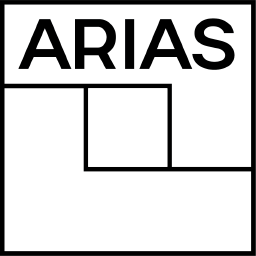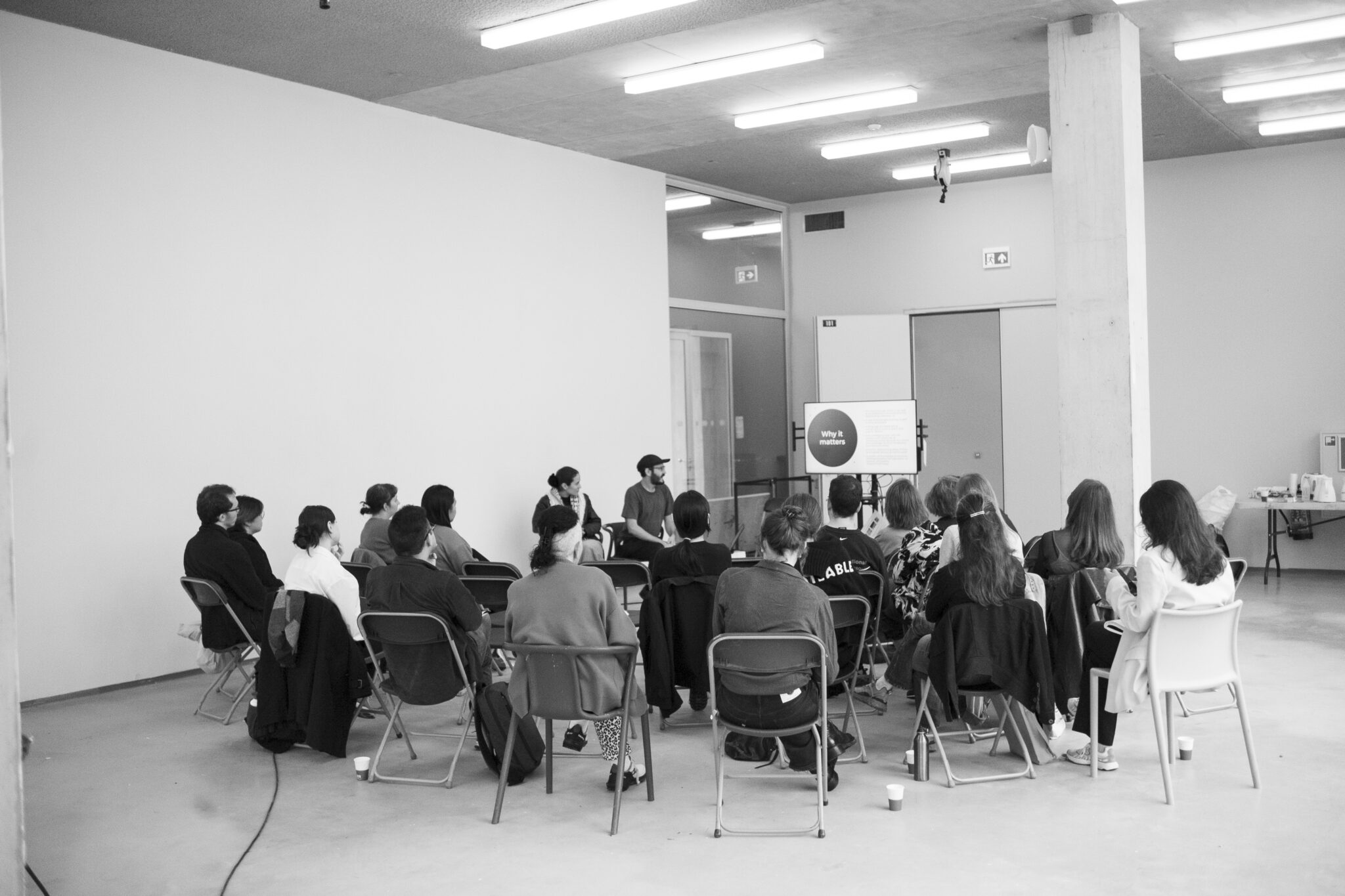

The workshop’s divination board.
In this session, visual artists and researchers Dorin Budușan and Sofía Fernández Blanco led an exploration into the intersections of artificial intelligence, magic, and divination. Instead of approaching AI purely through a techno-scientific lens, the session flipped the perspective, focusing on the intelligence of matter itself and the ways in which magic and divination have historically functioned as knowledge systems.
Dorin kicked off the session with a two-part presentation. The first part traced the interconnected history of science, magic, and religion, emphasising how symbolic thinking can act as a form of resistance against dominant techno-scientific narratives. The second part zoomed in on astrology as a case study, illustrating how meaning has long been derived from correlating human events with planetary movements.
In the second half of the session, participants were guided through the creation of their own divination system inspired by the workings of AI models. The group collaboratively built an “analogue ChatGPT”, reimagining machine intelligence through symbolic and participatory practices. The workshop concluded with live testing of the system—participants posed questions, and together, they interpreted the answers, echoing the way divination systems negotiate meaning between human and non-human agents.
We tapped into the growing conversation about how the rapid advancement of technology has led to a crisis of imagination. We reflected on how, by revisiting belief systems like magic, we can explore alternative perspectives and unlock possibilities for imagining different types of worlds. The conversation concluded with the reframing of AI through the lens of magic, opening up new ways of thinking about intelligence, imagination, and knowledge production.






Participants: Alessandra Tom, Aria Mohseni, Carlo De Gaetano, Chiara Bozzato, Elizaveta Federmesser, Femke Herregraven, Flavia Dzodan, Inna Kulazhenkova, Inte Gloerich, Janine Armin, Karime Salame, Laurens Vreekamp, Madison Jolliffe, Nadia Piet, Orestis Kollyris, Pablo Núñez, Rachael Rakes, Sabine Niederer, Sara Pezzolesi, Sorcha Brennan, Soph Boobyer, Timothy Yaczo, Vera Fearns, Yee Ting Lau, Youngseon Cha, Zachary Formwalt.





In the spring of 2024, the Slow AI project launched a series of material-based research workshops that took the form of Material Playgrounds, borrowing the term and building on the work of Socrates Professor Erik Rietveld. These workshops aim to collectively explore different ways of engaging with AI through material investigations that allow for playful exploration and experimentation.
Slow AI focuses on developing strategies to address colonial and extractive histories embedded in current AI systems by applying the concept of ‘slowness’ to a fast technology. It is a project initiated by artist and researcher Mariana Fernández Mora and a collaboration between the Visual Methodologies Collective (HvA) and the Sandberg Institute (GRA). In collaboration with the Artificial Worlds group at ARIAS Amsterdam and generously funded by the Centre of Expertise Creative Innovation, Slow AI aims to contribute to a more equitable and sustainable technological landscape.
For updates on the research and public events, subscribe to the ARIAS Artificial Worlds newsletter.



